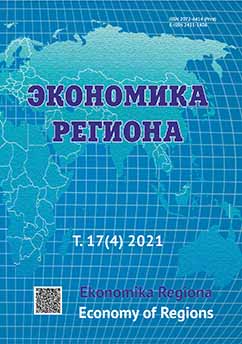Национальная климатическая политика: концептуальные основы и проблемы адаптации
National Climate Policy: Conceptual Framework and Adaptation Problems
Author(s): Vitaliy S. Vasiltsov, Natalya Nikolaevna Yashalova, Elena N. Yakovleva, Andrey V. KharlamovSubject(s): Economy, Geography, Regional studies
Published by: Институт экономики Уральского отделения Российской академии наук
Keywords: national and regional climate policy; digitalisation; information asymmetry; climatic risks; organisational and economic mechanism; green innovation; financial instruments; monitoring; decoupling
Summary/Abstract: Global climate change threatens the continued existence of mankind. The rate of warming in Russia, which is 2.5 times higher than the rate of growth of the global average temperature, can lead to huge environmental and financial losses. Thus, it is increasingly necessary to modernise and develop methods and tools for adaptive regulation of national climate policy to increase its efficiency at the regional and federal levels. To this end, the methods of content analysis, grouping, modelling, comparative and correlation analysis, as well as an information asymmetry approach were used in the research. The paper substantiates the necessity of a transition from autarky and directionality to the integration of regions and the federation based on adaptation and preventive measures. The periodic assessment of climate change and relevant contributing factors should be replaced by the continuous management and regional monitoring of climate risks. Stressing the importance of transparency and comparability of information on climate risks, the research distinguished anthropogenic risks, risks of reducing the quality of life and moral climate risks. In order to promote climate preservation, an organisational and economic mechanism for the implementation of climate policy was developed, whose main function is the regional environmental management. Assessment of the decoupling effect and ranking of the constituent entities of the Russian Federation in terms of the relationship between energy intensity and climate intensity proved the feasibility of using the proposed indicators to increase the efficiency of the organisational and economic mechanism. Regulatory and financial support for the mechanism can be provided by introducing a quota market, green certificates and bonds, insurance and risk hedging strategies based on a scenario approach and online-management models. The research results can be used for the digitalisation of national climate policy, as well as for the development of regional and municipal climate strategies, programmes, projects.
Journal: Экономика региона
- Issue Year: 17/2021
- Issue No: 4
- Page Range: 1123-1136
- Page Count: 14
- Language: Russian

